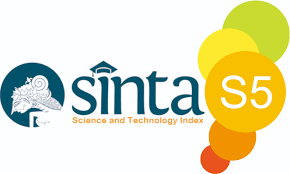E-Learning Pada Mahasiswa Geografi Di Negara Berkembang Pada Pandemi Covid-19: Kesiapan, Respons Dan Tantangan
DOI:
https://doi.org/10.30872/geoedusains.v5i1.3360Keywords:
e-learning pada mahasiswa geografi, pandemi COVID-19, kesiapan, respon, tantanganAbstract
Dalam upaya memutus penyebaran COVID-19, e-learning menjadi solusi agar pembelajaran di perguruan tinggi tetap berjalan. Kurangnya infrastruktur dan kualitas sumber daya manusia membuat negara berkembang seperti Indonesia menghadapi tantangan besar dalam menerapkan e-learning. Artikel ini menyajikan bagaimana implementasi e-learning selama pandemi COVID-19 di Departemen Pendidikan Geografi di Aceh, Indonesia. Penelitian ini menggunakan pendekatan kuantitatif dengan teknik survei. Populasi penelitian adalah seluruh mahasiswa Jurusan Pendidikan Geografi di empat perguruan tinggi di Aceh. Pengumpulan data menggunakan kuesioner yang disebar melalui WhatsApp Group dan diisi secara online di google form. Setelah 1 bulan dari tanggal 1 Mei hingga 31 Mei 2020, terdapat 250 tanggapan yang terkumpul. Hasil penelitian menunjukkan bahwa dari aspek kesiapan, bagi 64% responden, pembelajaran daring di masa pandemi COVID-19 merupakan pengalaman pertama bagi mereka. Terkait respon responden terhadap e-learning, 88% responden memberikan respon negatif terhadap e-learning yang diterapkan pada masa pandemi COVID-19. Hal ini disebabkan oleh berbagai tantangan yang mereka hadapi. Berdasarkan temuan tersebut, disarankan kepada dosen untuk memiliki strategi pembelajaran yang inovatif untuk menarik minat mahasiswa terhadap e-learning. Pemerintah perlu menyediakan infrastruktur jaringan internet yang merata ke seluruh daerah.
Downloads
References
Aji, R.H.S. (2020). Dampak Covid-19 pada pendidikan di Indonesia: Sekolah, keterampilan, dan proses pembelajaran. SALAM; Jurnal Sosial & Budaya Syar-i Vol. 7 No. 5 (2020), pp. 395-402, DOI: 10.15408/sjsbs.v7i5.15314.
Allen, J., Rowan, L., & Singh, P. (2020). Teaching and teacher education in the time of COVID-19. Asia-Pacific Journal of Teacher Education, 48(3), 233–236. https://doi.org/10.1080/1359866X.2020.1752051.
Analisadaily.com. (2019). Dana otsus melimpah, infrastruktur Aceh tertinggal. From: https://analisadaily.com/berita/arsip/2017/1/7/295300/dana-otsus-melimpah-infrastruktur-aceh-tertinggal/
Badan Pusat Statistik. (2019). Aceh dalam angka 2019. Banda Aceh: Badan Pusat Statistik Provinsi Aceh.
Baloran, E. T. (2020). Knowledge, attitudes, anxiety, and coping strategies of students during COVID-19 pandemic. Journal of Loss and Trauma, 1–8. https://doi.org/10.1080/15325024.2020.1769300.
Bryson, J.R., & Andres, L. (2020): Covid-19 and rapid adoption and improvisation of online teaching: curating resources for extensive versus intensive online learning experiences, Journal of Geography in Higher Education, DOI: 10.1080/03098265.2020.1807478.
Codrington, G & Grant-Marshall, S. (2004). Mind the gap. Penguin Books.
Ghirardini, B. (2011). E-learning methodologies. Germany: Federal Ministry of Food, Agriculture and Cunsomer Protection.
Goldschmidt, K. (2020). The COVID-19 Pandemic: Technology use to support the wellbeing of children. Journal of Pediatric Nursing, 53 (2020) 88–90.
Gunawan., Sahidu, H., Susilawati, S., Harjono, A., & Herayanti, L. (2019). Learning management system with moodle to enhance creativity of candidate physics teacher. Journal of Physics: Conference Series, Vol. 1417, No. 1, p. 012078.
Gunawan., Suranti, N.M.Y., Fathoroni. (2020). variations of models and learning platforms for prospective teachers during the COVID-19 pandemic period. Indonesian Journal of Teacher Education, Vol. 1 No. 2, 2020: 61-70.
Halliwell, J. (2020). Applying social media research methods in geography teaching: benefits and emerging challenges? Journal of Geography, 1-6. https://doi.org/10.1080/00221341.2020.1755717.
Herayanti, L., Gummah, S., Sukroyanti, B.A., Ahzan, S., & Gunawan, G. (2018). Developing moodle in problem-based learning to improve student comprehension on the concepts of wave. Advances in Intelligent Systems Research (AISR), 157(1), 134-137.
Leacock, C. J., & Warrican, S. J. (2020). Helping teachers to respond to COVID-19 in the Eastern Caribbean: Issues of readiness, equity and care. Journal of Education for Teaching, 1–10. https://doi.org/10.1080/02607476.2020.1803733.
Lestari, S.A & Gunawan. (2020). The impact of Covid-19 pandemic on learning implementation of primary and secondary school levels. Indonesian Journal of Elementary and Childhood Education, Vol. 1 No. 2, 2020: 58 – 63.
Mailizar., Almanthari, A., Maulina, S., & Bruce, S. (2020). Secondary school mathematics teachers’ views on e-learning implementation barriers during the COVID-19 pandemic: The case of Indonesia. EURASIA Journal of Mathematics, Science and Technology Education, 2020, 16(7).
Marta, R. (2018). Evaluasi implementasi pembelajaran keterampilan komputer dan pengolahan informasi (KKPI) berbasis e-learning. Jurnal Teknologi Informasi dan Pendidikan, 11(1), 2620 – 6390.
Moorhouse, B. L. (2020). Adaptations to a face-to-face initial teacher education course ‘forced’ online due to the COVID-19 pandemic. Journal of Education for Teaching, 1–3. https://doi.org/10.1080/02607476.2020.1755205.
Morgan, H. (2020). Best Practices for implementing remote learning during a pandemic. The Clearing House: A Journal of Educational Strategies, Issues and Ideas, 93(3), 135–141. https://doi.org/10.1080/00098655.2020.1751480.
Murphy, M.P.A. (2020) COVID-19 and emergency e-learning: Consequences of the securitization of higher education for post-pandemic pedagogy, Contemporary Security Policy, 41:3, 492-505, DOI: 10.1080/13523260.2020.1761749.
Mutton, T. (2020). Teacher education and Covid-19: Responses and opportunities for new pedagogical initiatives. Journal of Education for Teaching, 1–3. https://doi.org/10.1080/02607476.2020.1805189.
Osman, M. E. (2020). Global impact of COVID-19 on education systems: The emergency remote teaching at Sultan Qaboos University. Journal of Education for Teaching, 1–9. https://doi.org/10.1080/02607476.2020.1802583.
Owusu-Fordjour, C., Koomson, C. K., & Hanson, D. (2020). The impact of Covid-19 on learning-the perspective of the Ghanaian student. European Journal of Education Studies, 7(3), 88-100.
Pangondian, A.R., Santosa, I.P., & Nugroho, E. (2019). Faktor-faktor yang mempengaruhi kesuksesan pembelajaran daring dalam revolusi industri 4.0. Prosiding Seminar Nasional Teknologi Komputer & Sains (SAINTEKS) ISBN: 978-602-52720-1-1. Hal : 56 – 60.
Panigrahi, R., Srivastava, P. R., & Sharma, D. (2018). Online learning: Adoption, continuance, and learning outcome. International Journal of Information Management, 43, 1-14.
Pratiwi, E.W. (2020). Dampak COVID-19 terhadap kegiatan pembelajaran online di sebuah perguruan tinggi Kristen di Indonesia. Perspektif Ilmu Pendidikan Volume 34 Issue 1 April 2020. DOI: doi.org/10.21009/PIP.341.1.
Pujilestari, Y. (2020). Dampak positif pembelajaran online dalam sistem pendidikan Indonesia pasca pandemi Covid-19. 'ADALAH, 4(1), 49-56.
Purwanto, A., Pramono, R., Asbari, M., Hyun, C. C., Wijayanti, L. M., & Putri, R. S. (2020). Studi eksploratif dampak pandemi COVID-19 terhadap proses pembelajaran online di sekolah dasar. Journal of Education, Psychology and Counseling, 2(1), 1-12.
Rasmitadila., Aliyyah, R.R., Rachmadtullah, R., Samsudin, A., Syaodih, E., Nurtanto, M., & Tambunan, A.R.S. (2020). The perceptions of primary school teachers of online learning during the COVID-19 pandemic period: A case study in Indonesia. Journal of Ethnic and Cultural Studies, 7(2), 90–109. https://doi.org/10.29333/ejecs/388.
Riyanda, R.A., Herlina, K., Wicaksono, A.B. (2020). Evaluasi implementasi sistem pembelajaran daring Fakultas Keguruan dan Ilmu Pendidikan Universitas Lampung. Jurnal IKRA-ITH Humaniora Vol 4 No 1 Maret 2020.
Saifuddin, A. (2010). Metode penelitian. Yogyakarta: Pustaka Pelajar.
Scull, J., Phillips, M., Sharma, U., & Garnier, K. (2020). Innovations in teacher education at the time of COVID19: An Australian perspective. Journal of Education for Teaching, 1–10. https://doi.org/10.1080/02607476.2020.1802701.
Selvan, S. S. A., & Hussain, S. M. (2020). The impact of Covid-19 online teaching sources for Indian students. UGC CARE Journal, 31(17), 1252-1256.
Serambinews.com. (2019). Pendidikan Aceh peringkat 27 secara nasional, salah satu penyebab rendahnya mutu guru. From: https://aceh.tribunnews.com/2019/10/28/pendidikan-aceh-peringkat-27-secara-nasional-salah-satu-penyebab-rendahnya-mutu-guru
Sun, L., Tang, Y., & Zuo, W. (2020). Coronavirus pushes education online. Nature Materials, 19(6), 687-687.
Sugiyono. (2017). Metode penelitian pendidikan pendekatan kualitatif, kuantitaf, dan R & D. Bandung: PT. Alfabeta.
Surat Edaran Kementerian Pendidikan dan Kebudayaan Republik Indonesia Nomor 4 Tahun 2020 Tentang Pelaksanaan Kebijakan Pendidikan Dalam Masa Darurat Penyebaran Coronavirus Disease (COVID-19).
Surat Edaran Kementerian Pendidikan dan Kebudayaan Republik Indonesia Nomor 15 Tahun 2020 Tentang Pedoman Penyelenggaraan Belajar dari Rumah dalam Masa darurat Penyebaran COVID-19
UNESCO. (2020). Alternative solutions to school closure in arab countries to ensuring that learning never stops, from: https://en.unesco.org/news/alternative-solutions-school-closure-arab-countries-ensuring-learning-never-stops.
Vaughan. N,. (2007). Perspectives on blended learning in higher education. Internasional Journal on E-Learning. Vol.6, No.1 (2007), 81–94.
Wicaksono, D.V., & Rachmadyanti, P. (2017). Pembelajaran blended learning melalui google classroom di sekolah dasar. Prosiding Seminar Nasional Pendidikan PGSD UMS dan HDPGSDI Wilayah Jawa.
Zaharah, Z., Kirilova, G. I., & Windarti, A. (2020). Impact of Corona Virus outbreak towards teaching and learning activities in Indonesia. SALAM: Jurnal Sosial dan Budaya Syar-i, 7(3), 269-282.










